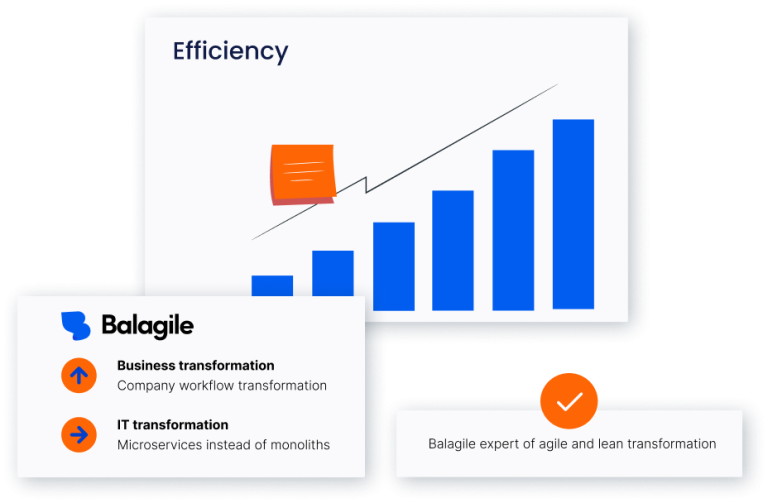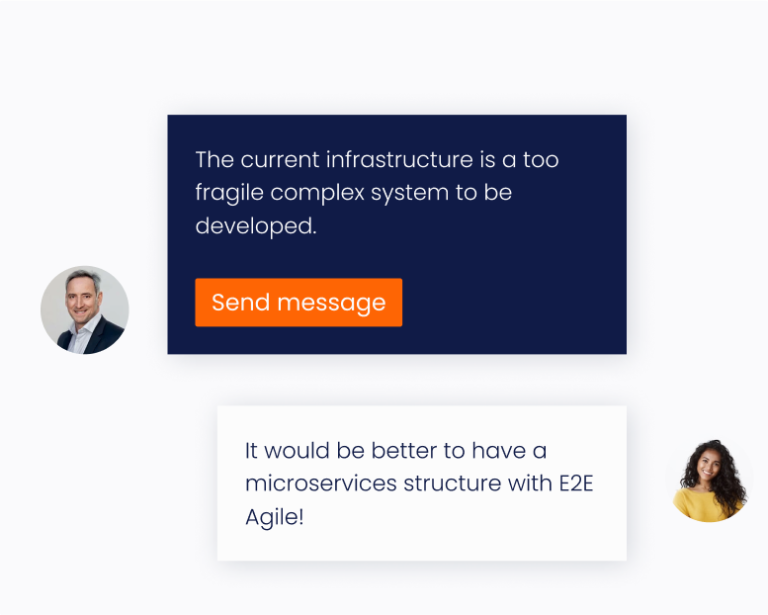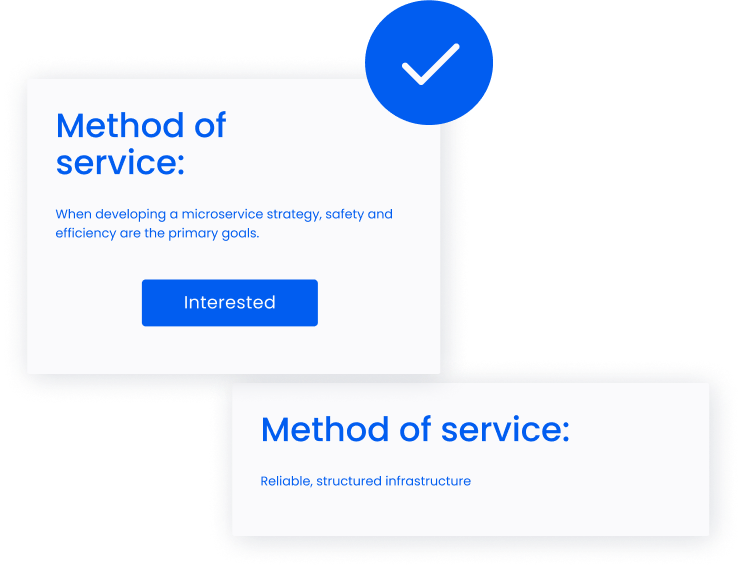INCREASE OVERALL ORGANIZATIONAL EFFICIENCY
End-to-End Agile focuses on the agile transformation of the entire cross-section of the enterprise, encompassing business and IT fields in a unified way.
To increase the efficiency of the organization, both business and IT sides must align with the agile principles. If this harmony is achieved, then the agile transformation will bring the desired results.
Just as cross-functional business domains are created on the organizational side, it is also necessary to create the possibility of quickly releasing individual incremental development units in the IT architecture. To do this, it is necessary to transform the software architecture of IT systems and the method of data management of the entire organization.
It is worth transforming IT systems into event-driven microservice architectures. For operational and analytical data management, it is advisable to implement the principles of data-mesh, where the responsibility for producing data of the right quality should be delegated to the level of individual agile teams.

Seamless implementation of business initiatives
Instead of a centralized IT monolithic system, it is necessary to develop smaller, microservice units (more recently, MASA architectures), which meet the requirements of compliance and provide the up-to-date IT and data reporting background necessary for successful corporate performance processes. See Gartner’s 2020 report: How to Create an Agile Application Architecture https://www.gartner.com/en/documents/3980382
Productivity with agile transitions
Every leader must build a microservices and data communication architecture that can quickly respond to both local expert and overall strategic needs without disruption or hindrance, in order to keep their company competitive in the market.
DECENTRALIZED STREAM
With its modern solutions, it is safer than monolith. Fast to respond to local business needs, consistent so your portfolio isn't compromised.
PROCESS LEAD TIME SHORTENS
The implementation of agile principles not only shortens the time required for business and product development, but also allows a faster market entry with an emphasis on security.
PROVEN TECHNOLOGIES
The reliability and efficiency of the technologies designed for the banking environment are outstanding, and their implementation has been tested several times.
6 steps to make your entire organization more efficient and impactful
Based on 20 years of experience in banking and 23 years of experience in agile transformation, the most effective agile transformation can be carried out on the entire cross-section of the company based on 6 steps, without disrupting the current portfolio and operations.
Process assessment
Microservice-based business operations don’t need to differ from current operations. To achieve this, it is important to have a thorough understanding of the current processes.


IT infrastructure mapping
The IT infrastructure that drives the processes will serve as the foundation for the microservices and the data structure that supports them.

Development of a measurement-based plan
The effectiveness of all processes must be validated through measurements. The measurements demonstrate the procedure’s efficiency over time and enable continuous improvement.
Implementation planning
The foundation of any transformation process is a roadmap that outlines a step-by-step plan tailored to the organization, so it will be able to support the company from the outset.


Iterative implementation
Using the iterative approach of the agile methodology, we are constantly moving forward to the transformation goal. E2E Agile supports the process by implementing functional and usable microservices, providing end-to-end support by constructing the appropriate infrastructure.
Results
Implementation of a bank
customer mail generation system with event-driven and scalable microservices.
Massive data transfer
and real-time data transformation from banking source systems to CRM and mobile banking systems.
Microservice transformation
of bank account management system interfaces.
Partnereink
© 2023




